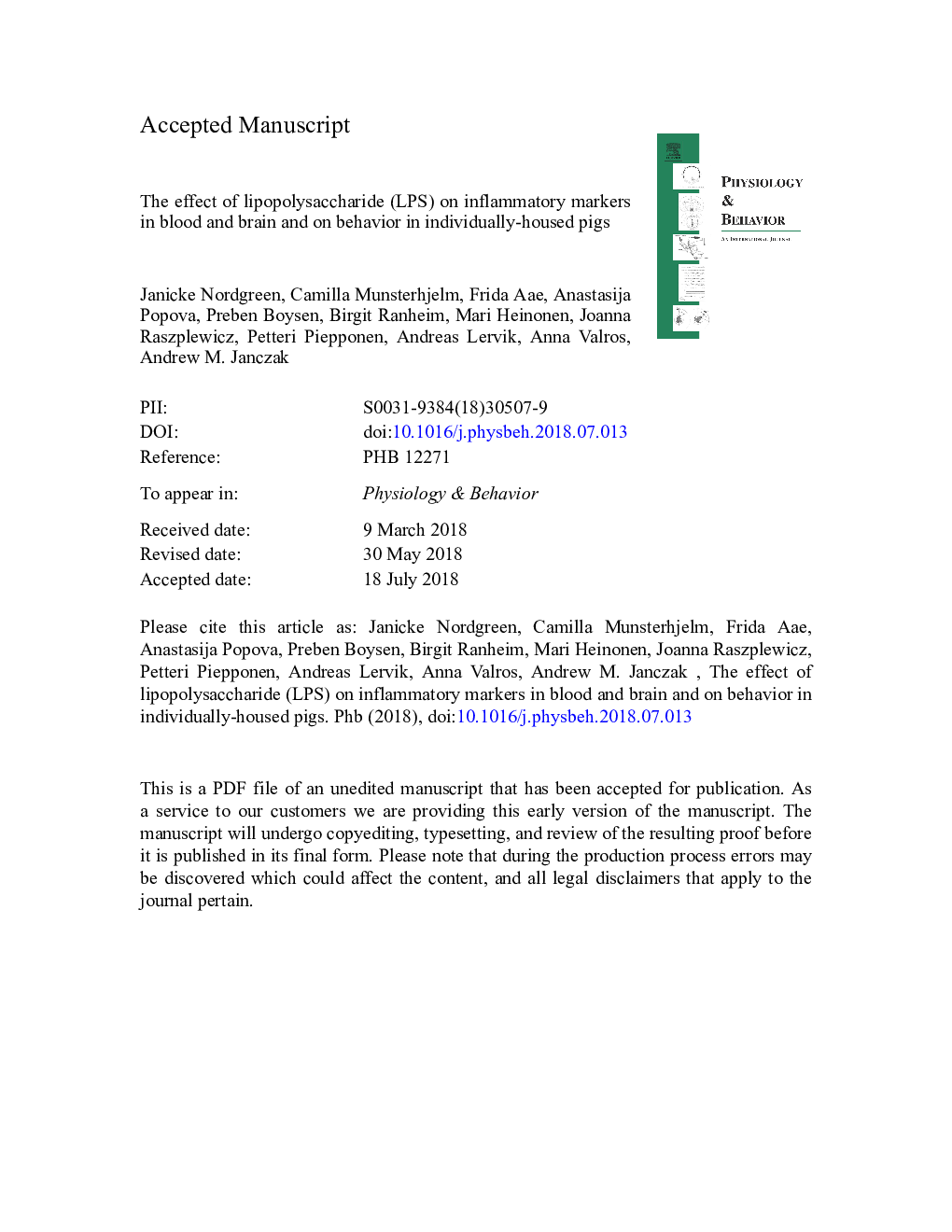| Article ID | Journal | Published Year | Pages | File Type |
|---|---|---|---|---|
| 8650217 | Physiology & Behavior | 2018 | 63 Pages |
Abstract
Most of us have experienced deterioration of mood while ill. In humans, immune activation is associated with lethargy and social withdrawal, irritability and aggression; changes in social motivation could, in theory, lead to less functional interactions. This might also be the case for animals housed in close confinement. Tail biting in pigs is an example of damaging social behavior, and sickness is thought to be a risk factor for tail biting outbreaks. One possible mechanism whereby sickness may influence behavior is through cytokines. To identify possible mediators between immune activation and behavioral change, we injected 16 gilts with lipopolysaccharide (LPS; O111:B4; 1.5â¯Î¼gâ¯kgâ1 IV through a permanent catheter). In LPS-treated pigs, a significant increase in cortisol, TNF-α, IL-1 receptor antagonist, IL-6, and IL-8 was observed alongside decreased activity within the first 6â¯h after the injection. CRP was elevated at 12 and 24â¯h after injection, and food intake was reduced for the first 24â¯h after injection. Three days post-injection, LPS pigs had lower levels of noradrenaline in their hypothalamus, hippocampus and frontal cortex compared to saline-injected pigs. Pigs injected with LPS also had higher levels of the pro-inflammatory cytokine IFN-γ in their frontal cortex compared to saline-injected pigs. Thus, a low dose of LPS can induce changes in brain cytokine levels and neurotransmitter levels that persist after inflammatory and stress markers in the periphery have returned to baseline levels.
Related Topics
Life Sciences
Biochemistry, Genetics and Molecular Biology
Physiology
Authors
Janicke Nordgreen, Camilla Munsterhjelm, Frida Aae, Anastasija Popova, Preben Boysen, Birgit Ranheim, Mari Heinonen, Joanna Raszplewicz, Petteri Piepponen, Andreas Lervik, Anna Valros, Andrew M. Janczak,
